Monday Feb 23, 2026
Monday Feb 23, 2026
Friday, 14 December 2018 00:00 - - {{hitsCtrl.values.hits}}
Colombo, Sri Lanka: Tomorrow marks International Universal Health Coverage (UHC) Day. Universal Health Coverage is a fundamental goal rooted in the human right to health. It ensures that every person, no matter who they are or where they live – has access to quality health services without suffering financial hardship. Achieving universal health coverage will accelerate efforts to end extreme poverty, achieve gender equality and increase health security, so that no one is left behind.
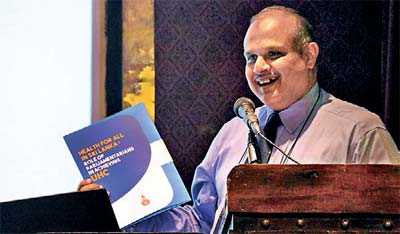 |
Sri Lanka Medical Association President Dr. Ruvaiz Haniffa |
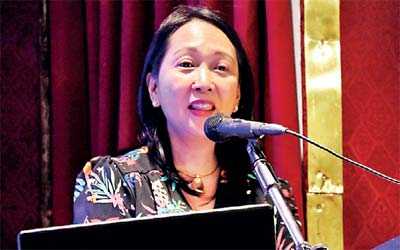 |
WHO Sri Lanka Public Health Administrator Dr. Olivia Corazon Nieveras
|
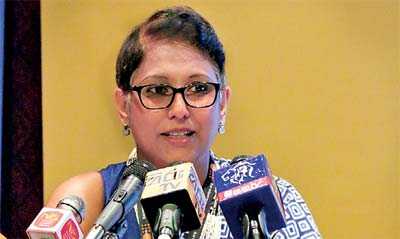 |
UNFPA Sri Lanka Assistant Representative Madusha Dissanayake
|
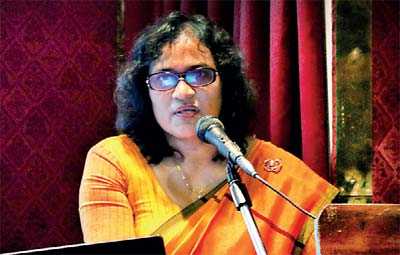 |
Ministry of Health Consultant Community Physician Dr. Shiromi Maduwage
|
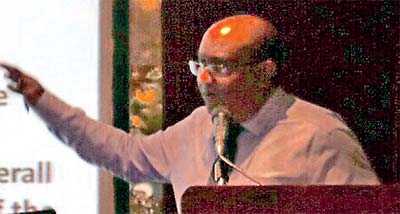 |
WHO Sri Lanka National Program Officer Dr. Padmal De Silva
|
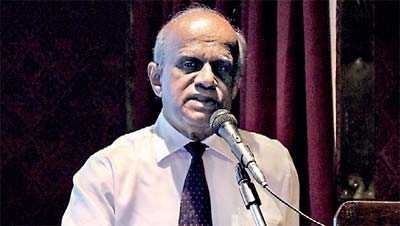 |
National Authority of Tobacco & Alcohol Chairman Dr. Palitha Abeykoon
|
In Sri Lanka, this means ensuring that the country’s health system is ready to respond to current population shifts. It is predicted that by 2030, 1 in 5 people in Sri Lanka will be above the age of 60 years. This demographic transition makes Sri Lanka the most rapidly ageing population in the South Asia region. An ageing population is a result of the country’s continuous investments in making people live longer. However, it is important to ensure that health systems are readily in place to support the needs of the growing elderly population.
Commemorating International Universal Health Coverage Day 2018, the World Health Organisation (WHO) together with the United Nations Population Fund (UNFPA) and the Sri Lanka Medical Association (SLMA) convened a press conference in Colombo.
Sri Lanka Medical Association President Dr. Ruvaiz Haniffa said: “In the past we have been treating illness and disease, it has only left us with a health system that is not people-centred; it is high time we start changing the health system to one that is people-oriented. We cannot continue business as usual. We must include everyone, everywhere.”
WHO Sri Lanka Public Health Administrator Dr. Olivia Corazon Nieveras said: “Good health is a human right, not a privilege. Health systems need to focus on promoting health and not curing diseases; the goal should be to live well and not just to live more. We need to transform health systems from hospital-centred and illness-based to people-centred systems. The first level of future healthcare should become increasingly closer to where people live and work as our needs change across life stages, access to health services should not. The country is in a good trajectory towards Universal Health Coverage by investing in Primary Healthcare reorganisation (PHC). PHC is the most effective and efficient way of achieving good health for the population.”
Further, UNFPA Sri Lanka Assistant Representative Madusha Dissanayake highlighted: “It is when youth make informed life decisions now, that they can be economically empowered to age with dignity. Therefore, universal access to sexual and reproductive health services for all, at all ages, is absolutely necessary for Sri Lanka to be ready to face this demographic shift. It allows people to age actively and healthily, which in return will help the health system as well.”
To achieve the vision of Universal Health Coverage by 2030, all Sri Lankans should have access to the healthcare that they need without being pushed into poverty or giving up other life necessities. Sri Lanka must adopt a lifecycle approach to healthcare – one that starts early and continues through the reproductive years and lasts into old age – to support the physical and emotional well-being of older persons in Sri Lanka.Every year, Universal Health Coverage Day reminds the world that health for all is imperative for the world we want. When people are healthy, families, communities and economies can reach their full potential. We need collective action now, to build a strong, equitable health system in Sri Lanka.